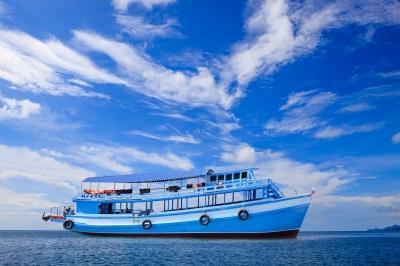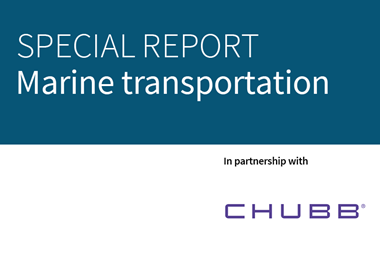Legislation makes Spain one of the few countries in the world where the majority of maritime law is governed by a single statute

The new Shipping Law (14/2014), which took effect in September 2014, marks a milestone in Spanish maritime law. It has brought the domestic regime into line with international conventions and EU regulations, and makes Spain one of the few countries in the world where the vast majority of maritime law is governed by a single statute. The result is a modern law that reflects the needs and demands of today’s maritime industry.
The law has also enhanced legal certainty by resolving contradictions between domestic law, international conventions and EU law in force in Spain. It thus represents a significant step forward in its application to domestic cases and in the clarification it provides on when international law applies. It will also help to open up Spanish jurisdiction to maritime claims through its clauses on jurisdiction.
This update outlines the key players governed by the law.
Classification societies
Pursuant to Article 106, classification societies “will be contractually liable to those who contract with them for any damage or loss as a consequence of the absence of diligence in inspecting vessels and issuing certificates”. Third-party liability will be determined in accordance with common law, without prejudice to international conventions and EU rules that may apply.
Proprietor, shipowner and operator
The new law devotes an entire title (Title III) to the key figures of the shipowner and operator, along with ship co-owners and crew members, with a special focus on the master.
The law has introduced some crucial changes in this regard, including subordination of the vessel’s proprietor to the shipowner and a clear distinction between:
- the ‘shipowner’ - defined as someone that, “whether or not owning the vessel, has possession of it and uses it for sailing on its own behalf and at its responsibility”; and
- the ‘operator’, defined as “a person or entity that operates its own or other merchant vessels, even where this is not its primary activity, under any kind of contract admitted by international customs”.
Ownership of the vessel is thus linked to the shipowner, while use of the vessel is associated with the operator. However, if the operator owns the vessel, it will also be shipowner.
Additionally, the law considers as shipowner the proprietor that is registered as such in the Property Register.
Finally, Chapter II of Title III deals with ‘naval condominium’, which it defines as “the co-ownership of a vessel or craft when it has as its end the development of a merchant operation”. The definition of ‘co-ownership’ is thus derived from its nature as a joint merchant operation under a majority regime, featuring shipowners and operators that may not be the proprietors. The most noteworthy aspects of this arrangement are as follows:
- only simple majority approval is required to carry out any action
- each condominium owner will be considered a shipowner
- minority parties in the condominium will have the right to demand that a sale take place through public auction if they did not participate in, or were opposed to, a sale. They also have the right to withdraw from the condominium (by transferring their quota to another party) if they did not intervene in or opposed the sale.
- in the event of a sale to a third party, the other co-owners have a right of first refusal and pre-emptive rights for a nine-day period.
Master
Articles 171 to 187 govern the master of the ship, defined as the person who “commands and directs the ship, manages its equipment and represents the public authority on board”.
From the outset, the legislature has stressed two features of great importance: it is the master who manages and directs the ship, and the master is also a public authority.
Under the title “Prevalence of professional criterion”, Article 184 states:
”Neither the shipowner, nor the charterer, nor any person with an interest in the ship or its cargo, shall set obstacles or restrictions to the Master of a ship when making or executing any decision that, according to his professional criterion, is required in order to protect human life at sea or the marine environment.”
The law thus clearly separates decisions that affect the commercial operation of the vessel from decisions concerning the management of the vessel in sailing terms, with the latter clearly prevailing over the former.
Article 172 provides that the appointment of the master is the responsibility of the shipowner, which can also order their removal. This “special relationship of trust” is considered, within the general framework of labour law, as an ordinary relationship between employer and employee. It thus appears that the consideration of the master as senior management in previous regulations has been dropped.
Article 185 states that the master shall act as the shipowner’s representative when deciding on the ordinary needs of the ship. The master will always be liable to the shipowner for any actions or contracts executed which oppose the latter’s legitimate instructions.
The new law also regulates the master’s registration obligations in relation to:
- births, deaths and marriages;
- wills and missing persons;
- the communication of accidents; and
- the lifting of protest where events have occurred for which he or she may be deemed liable.
Ship agent
As discussed, the law defines the ‘shipowner’ as the natural or legal person in possession of the vessel or craft, which uses it on its own behalf and at its own responsibility. By contrast, the ‘operator’ is a natural or legal person that operates its own or other merchant ships - even where this is not its primary activity - under any kind of contract admitted by international customs.
The law’s explicit derogation from Article 586 of the Commercial Code and Article 3 of the Law on Maritime Transportation, which previously equated the roles of operator and ship agent, should facilitate the understanding and interpretation of the concepts of shipowner, operator and proprietor, which may now be further distinguished from the concept of a ship agent - especially given the relevant case law on the question of liability for damages to cargo.
The law aims to resolve the issues presented by recent case law consolidated by the Supreme Court, which established the legal and direct equivalence of the concepts of operator and ship agent on the basis of Article 586 of the Commercial Code and Article 3 of the Law on Maritime Transportation. This meant that a ship agent would be held liable for any loss of, damage to or delay in delivery of cargo transported by sea, even where the agent did not contract this transport in its own name, carry it out or participate in the transport in any way.
The law confirms the prevailing view in the sector that a ship agent should not be liable to indemnify cargo recipients in the event of loss, damage or delayed delivery of the cargo. However, the law does stipulate that the agent will be liable to the shipowner or operator for any damages due to fault. Finally, the law provides that the ship agent is obliged to handle claims and complaints relating to the cargo and pass them on to the shipowner or operator.
On the other hand, the law explicitly clarifies that the ship agent will be jointly and severally liable (together with the shipowner, operator or charterer) for the cargo if it signs the bill of lading without specifying that it is doing so on behalf of the shipowner, operator or charterer. Likewise, the law specifies that the ship agent will be liable in the same way as the freight forwarder or port operator (for the handling of cargo) when acting as such, and not as a ship agent.
Luis de San Simón is a partner and Mercedes Duch is a partner at San Simón & Duch in Madrid, Spain































No comments yet